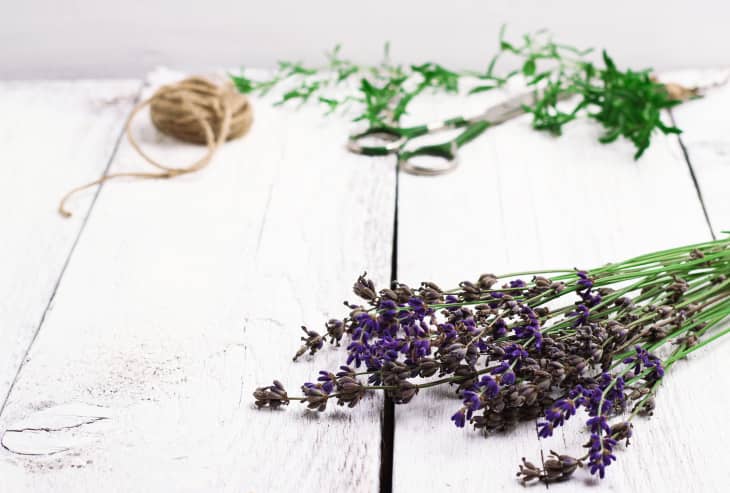
The best thing about curb appeal trends is that they’re easy to see with a glance down the street. Such was the case when I began to notice the unmistakable hazy-purple of lavender plants punctuating front yards in my town. The soft, full plants line walkways, add even more color to flower beds and add a little extra interest to the patch of grass around mailbox posts.
Lavender makes a fabulous choice for landscapes not just for the rich hue of its buds or the wonderful scent that wafts through the air. It’s also a plant that you can establish through the fall in many parts of the country, depending on the variety you choose and how much you’re willing to invest in time and attention.
Though there are hundreds of varieties of lavender, there are three main types: English, French/Spanish, and English hybrids. English lavender (Lavandula angustifolia) is one of the top varieties for gardeners for its true “lavender” scent and pretty silver foliage. It’s hardy through USDA zones 5a-8a but you can find some varieties that can go up to zone 10, like Lavandula angustifolia Vera. Another favorite is French lavender (Lavandula dentata) and Spanish lavender (Lavandula stoechas). While they doen’t have as strong of a fragrance as English lavender, these types are a great choice for a perennial for zone 8-11. English hybrids (Lavandula x intermedia) grow fast and bloom through the summer, making it a great choice for those who want to start their lavender garden now. For recommendations tailored to your specific zone, get in contact with a lavender farm near you.
Lavender thrives in well-drained soil, preferably in a raised bed or container garden, and requires full sun. The most important factor to consider is drainage, since humidity and excessive moisture can spell doom for lavender plants. (Bonnie Plants recommends adding builder’s sand to the soil to increase drainage.) But the best part of lavender upkeep is clipping faded flowers, which will encourage continued blooming.
Whether you’ll go for a container garden, a raised bed, or just want to dream about your future dream job as the owner of a lavender farm, here are just a few of our favorite projects featuring our favorite herb.

This English-style garden by BE Landscape Design adds so much charm to a front yard in California.

The stunning Isabella Street Garden House by David Buergler is even more inviting thanks to the lush lavender that lines the walkway.

Julie of Little Farmstead (as spotted on My Soulful Home) used old galvanized pots for her lavender plants, which add a charming touch to her front steps.

Containers of lavender give a garden feel to this rooftop terrace by Hampstead Garden Design.

Two kinds of mint, chamomile, pineapple sage, lemon-scented geraniums and French lavender star in this window box by Granville, Ohio landscape architect Jennifer Bartley for Country Living.
Hải Yến
Gió bạn với cây tự buổi nào ,
Gió về cây lại ngất ngư chao .
Gió đi cây sẽ im lìm đứng,
Như kẻ lỡ làng dạ khát khao .



